HOT 97’S PETER ROSENBERG TURNED HIS PASSION INTO A CAREER BY FOLLOWING HIS HEART
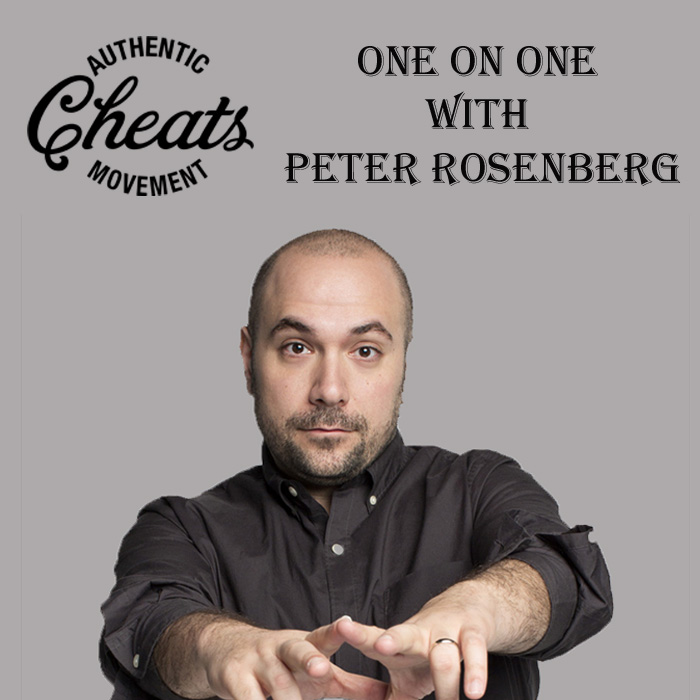
Peter Rosenberg is a busy man these days. Every day, he wakes up before the sun to do what he describes his primary job of “entertaining people” at the mecca of hip-hop radio Hot 97. It’s there Rosenberg, 38, serves as a co-host on one of the nation’s most popular morning radio shows “Ebro in the Morning.” In the late afternoon to early evenings, you’ll find Peter, co-hosting on another legendary team, the legendary New York sports radio show, The Michael Kay Show, which airs on ESPN New York.
It’s from there where Peter’s activities and schedule get even more unpredictable, you may find him doing a guest spot or even hosting his own radio show in Bristol for the sports mothership ESPN, where the Maryland native and lifetime hip-hop head can go toe-to-toe with anyone about on-field games and the sports culture that surrounds the actual play, you may find him on the WWE network sharing his passion and in-depth knowledge of professional wrestling, if it’s Monday at Midnight, you’ll still catch him hosting his own hip-hop show “Real Late with Peter Rosenberg”, one of the only hip-hop radio shows on a commercial station that still has cult following, like the early 90s.
And even with all the current activities, it is Peter’s instrumental role as co-creator and co-host of the legendary hip-hop podcast “Juan Epstein” that solidifies his Hall of Fame status, in my fictional – yet needed – Hip-Hop Hall of Fame (second or third ballot for sure – when his time is done).
Peter is known for his passion and direct style of communicating, and this interview is no different. He speaks candidly about his unlikely journey, his goal to diversify and reach a wider audience, and his uncertainty about what the future holds.
No matter what direction Peter goes, he will be following his heart, which has always been his guide since day one.
Cheats: Ladies and gentlemen, we are joined by a very special call-in guest, we are so excited about this. You’ve probably heard him on Hot 97, you’ve probably heard his podcast, Juan Epstein, with Cipher Sounds, you’ve probably heard him on ESPN, and on WWE, ladies and gentlemen, welcome to the podcast, Peter Rosenberg.
Rosenberg: Thank you very much, Marc. Appreciate you having me and going through my long list of random things that I do.
Cheats: Well, we’re going to get into that, because I thought I knew the majority of the jobs that you did, and it only took me a couple of seconds to research to realize that I don’t know the half of all the hustle and the work and the jobs that you currently have, not to mention the work that you’ve put in to get there. So, I want to start with you’ve been very successful turning your passions into a career. And a lot of people say that they want to do that, but not all of them are as successful as you are being able to do that. How have you been able to turn your passion into your career?
Rosenberg: That’s a really good question. I really think ultimately it was just belief. And not in a religious way, more just in a confidence way, in a way that you always know how you feel about something and if you know that you have an incredible passion for something, and you know that it’s real, no one can actually question it. You know there’s nothing to truly stop you because you know ultimately what you’re capable of and I always believed that I was a good talker, that I was a pretty polished talker and I had these specific passions, that are really authentic. So yeah, if you know you’re able to talk, or whatever your skill set may be, and you know you believe in the things that you talk about, why not? And that was always sort of the way I looked at it and so far, it’s kind of gone that way.
Cheats: Well, let’s talk about some of those particularly, in specifics. Early on, first and foremost, hip-hop is a passion that you’ve turned into an all-over career. I think it started DJing, right? You turned a DJ into more of an on-air personality. But talk about the early days of your involvement with hip-hop, how you fell in love with it, and fast forward a little bit to how like it really started to become a career for you?
PR: Yeah, I mean the short of it is, I DJed as a kid, when I was 14, I saved up and bought turntables. I was super into hip-hop back then, I was into hip-hop from around ’89, ’90, I was aware of it previous to that, but by ’91, ’92 I was very active and into it myself. And by the time I got to high school, I was already considered the guy in school who knew a lot about hip-hop.
And I was always really into it, was up on everything, bought turntables, saved up, got a job. And that was my thing for several years. The whole time, I’m also into radio, I enjoyed radio, we’d take trips to New York, I listen to Flex on the radio, and I was like, man, this is for me.
And, so it started like that, with hip-hop, just really a passion for the music, and a commitment to it and at that time, it wasn’t a time where hip-hop was necessarily utterly available like everywhere, so you had to put in the actual time.
Cheats: Right, it was niche, right? I’m from Virginia. I know you’re from the Maryland area, it was not as pop culture as it is now.
PR: No, not even close. Listen, I was definitely not the only person like me into hip-hop, that’s an exaggeration. People think that it’s terribly unique, but I’ll put it this way, it just wasn’t everywhere. It wasn’t. You had to put in time and effort. And so, as a result of putting in that time and effort, I developed a reputation of being like, oh, you heard of a new song? Ask Peter, he’ll know what it is. And that sort of became who I was in a very small circle as a kid. And years later, that never went away. When I went to Maryland, that reputation stayed. The reputation of Peter is the guy who really knows more than the average about hip-hop. And that was sort of my calling card for a long time, getting into the music and the culture.
Cheats: Fast forward to today, has that still maintained? Because especially with your show “Real Late” there’s still a sense that for independent hip-hop artists, up and coming hip-hop artists, you’re still the go-to guy of anybody else, even at a place like Hot 97.
PR: Yeah, I’ve kept the reputation, I think. But in my heart of hearts, I feel different. I don’t feel as up on it as I used to, which is a weird thing to acknowledge and get used to. But the fact of the matter is, you know, 28-year-old me who got to New York City and was just trying to do anything and put on everyone, is different than 38-year-old me, with three or four jobs and my number one job at Hot being to entertain people on the morning show every day. You know, your priorities change. And that’s just the nature of the beast. So, I think there are kids out there who certainly know much more about new hip-hop than I do, but I will say that I’ve kept my ear and I’ve kept my authenticity, I’ve never started playing stuff I didn’t want to play. I’ve always played a really diverse mix on Sunday nights, ranging from really underground, to much more commercial, but it’s new. Like the new commercial stuff. I’ve always kept, I’ve stayed in the lane that I’m happy with, I’m still proud of how the show sounds, I still think I’m, generally speaking, I am still often the first person to give someone a commercial radio spin.
Cheats: Right.
PR: That still happens right now. Am I as knowledgeable, I don’t think I am.
Cheats: That’s got to be a crazy feeling. There’s not a lot of places for a “Real Late” right? There’s not a lot of places for a show like that. Do you think there’s still a place, I know you have one, but do you think there’s still a place for groundbreaking shows for independent artists on mainstream radio?
PR: Not many. Not many. I mean that’s basically the really cool gig, honestly. How many commercial stations at this point have a slot that they give to someone and just say, go ahead. Play whatever you want, we trust you. That doesn’t happen very often. So, the fact that I’m able to do that is a blessing.
Cheats: The first podcast that I really picked up on, and listen to religiously, was “Juan Epstein”. I feel like “Juan Epstein” is actually more underappreciated today, than it’s ever been. Tell me a little bit about how you and Ciph (Chipa Sounds) started. You two were in on it early and doing some really revolutionary stuff, classic interviews.
PR: Well, it started because me and Ciph were put together to start working on what would eventually become a morning show. So, I suggested we do a podcast to get to know each other better and work out our chemistry. This is back in ’07-
Yeah, there was not another hip-hop podcast yet. There was yet to be any other podcast, that anyone knew of, where the theme of the podcast was hip-hop. That’s when this became. At the time, that was our only bond. It wasn’t that we even set out to be like, “Let’s do a hip-hop podcast.” But that’s what we talked about because that’s what we really had in common. It went on to really do really awesome stuff. I feel very much that this entire hip-hop podcast genre was … I don’t think there’s anyone out there who does a hip-hop podcast, who doesn’t know that “Juan Epstein” was the first, and sort of set a tone for what it can be. I’m very proud of it. I’m very proud of what we did, and the episodes we got, the interviews that happened, and just sort of the vibe of the show was special and lives in a special place.
Cheats: But is it fair to say that we think “Juan Epstein” is underrated?
PR: Yeah, well it’s inherently underrated, because the time in which it existed, the audience for podcasts was maybe a hundredth of what it is now. So, it’s inherently underrated. So now, if Rap Radar gets Jay-Z interview, and it’s put up on Tidal, the audience for that is so much bigger than when we had Jay-Z on six years ago.
Cheats: Which was a classic, even at that time it was a classic, right?
PR: Oh yeah, it was quite a moment. I don’t know, I haven’t heard the Rap Radar one in full yet to try to compare, but it was a special conversation. It was the first time we really went in-depth on his hip-hop roots, and sort of the old-school Jay-Z sensibility that we all know is in him. We really were able to talk about that. It was special. It was really special, and I’m super proud of it. But yeah, the audience for it was inherently smaller. I mean no one then even knew how to subscribe to a podcast. It just was a totally different format, in terms of how people treated at. No regular person then … You basically at that time, had to sort of be a bit of a computer nerd to listen.
Cheats: It’s crazy to think that way, but it’s true. It’s just crazy to think about 10 years ago where we were with what you guys were doing.
PR: Yeah, now any 15-year-old girl could be listening to a podcast. Back then you had to be … It feels like it was all men in their 20s, were the only people who are able to listen to podcasts. That’s how it felt back then.
Cheats: Let me ask you about this, because one of the things that stands out about the way that you guys did that podcast, was it was an in-depth journey. I mean any of the artists you talked to, you learned more about that artist in that set period of time. Talk about that approach, because you could have easily made it a radio type show but you guys really went in-depth and uncovered a whole journey of somebody’s career, in a relatively short amount of time, especially some of the people you’re talking about. Was that always the goal?
PR: Yeah, I mean it was just naturally where it went, because of the kind of fans that Ciph and I were of hip-hop. So, we always had a deep history with the music we were discussing. It just went there. What would we want to hear? We’d want to hear the real nitty-gritty on these artists. It just organically happen that way honestly.
Cheats: I will tell you, the full archives of “Juan Ep” are very hard to find.
PR: Very good point. That is a very good point.
Cheats: What are some of the interviews that stood out to you?
PR: Well, Rakim was the last classic. That’ll be known as probably the last truly iconic one we ever pulled, where people went, “Oh shit, they got Rakim.” I feel like that was the last one like that, but prior to that, the ones that really made people go, “Oh my gosh,” was Jay-Z, of course. Eminem, of course, was a big one. We had Big Daddy Kane before he’d ever done any sort of interview like that. Kool G Rap, we had two episodes with Marley Marl. Man, not to be that guy, but it really does go on and on.
Then there are ones that are completely off the map. They don’t have anything to do with hip-hop. We have Patrice O’Neal’s last interview.
We have maybe MCA’s last interview. We have John Cena, and Mike Tyson, and Floyd Mayweather. I truly don’t know if anyone with a hip-hop podcast will ever match what our guest list was. I don’t know if it’s possible, based on the fact that we were based at Hot 97 at the time that we were. We were afforded access to so many great guests. Even if you’re really a big-time podcast, it’s hard to book. We were able to get stars from all over the map, simply because we had tons of people coming into the station.
Cheats: Right. I mean it’s just taking advantage of those opportunities, but you guys did it really well. I mean classic-
PR: Right.
Cheats: Obviously, you talk about the show in the past tense, is that something, obviously you’re doing a lot of different things, Ciph is doing a lot of different things, is it kind of one of those things with … What was the 30 for 30 I just saw, “Mike and the Mad Dog”? Will you guys come back together, and maybe do a live show or something?
PR: Yeah, I would like to figure out what that’s going to be. My guess is it will be something. I just don’t know yet what that will be. Me and Ciph’s schedules are both really difficult, so it will take a little bit of work. I’m not gonna lie, but yeah, I would like it to be even more than that, maybe quarterly. Something like that, so there’s still some sense of regularity.
Cheats: Well, now that I see Stretch and Bob back on NPR after so many years, I’m always going to hold out hope that there’s something, maybe not now, timing is everything, but maybe whenever, it will be an opportunity for “Juan Epstein” to make some triumphant returns, whatever form it is in.
PR: That’s a great point. I mean, if Stretch and Bob could come back after damn near, I mean generations of hip-hop went by while they were gone.
So, you never know, if that was possible. I absolutely think we will do work again. What level of regularity that is, what it looks like, I’m not sure. But there will be something again. I have no doubt.
Cheats: Let me jump to the opportunities that you’ve seized today. You’re always talking about timing and having the right opportunities. One of these opportunities that you had right now is at ESPN. Talk to me about the opportunities you have with ESPN, and how that’s all coming together.
PR: Well, it was really cool. I signed with an agency several years ago, and once I got with my agents, and they really believed in what I did, and saw opportunities at different places. They basically were like, “I think you’d make sense at ESPN.” I was like, “Sure.” ESPN is obviously going through a lot of changes, as everyone knows. Those changes started a few years ago, even though people didn’t seem to fully realize it until the mass layoffs. But those changes have been for a few years. They were like, “Hey, we think Rosenberg can make sense here,” and people there felt the same way.
Cheats: Did you believed ESPN made sense?
PR: Oh yeah, listen, I think anytime I’m talking about things that I’m interested in and passionate about, I think I can do a good job. I know I can be entertaining on whatever, and passionate, and thought-provoking. I love sports. I don’t come off as some freak knowledge guy, like even Francisca was regarded for early on. I’m not that. I’m just an entertaining person who is passionate about sports. So, they ended up finding a spot for me on ESPN New York. There’s a full-time, local New York station here, that’s one of ESPN’s three local radio stations that they own, that are fully programmed by ESPN. They put me on there, on the Michael Kay show, and just saw really good feedback right away, numbers wise. They saw that I was having an impact, which isn’t that surprising, considering I’ve been on in the market for 10 years.
Cheats: Right, people know your voice.
PR: Exactly. So again, it’s not rocket science, but I think it was cool that they thought of it. Obviously, I’m pleased that I’ve delivered, and that the show has grown since I got there. It’s awesome. Then that led to other stuff like, “Hey, come do Sports Nation. Come do Russillo. Come do First Take.” Things just sort of pop up, and I jump in where I can.
Cheats: Is there big difference coming from a radio station like Hot, to going to Bristol? I mean, obviously, you’re in New York on the Michael Kay show that’s local, but even just seeing the operation, was there an adjustment period for you? Were there things that even after so many years on the radio you were like, “Man, this is different?”
PR: Oh yeah, it definitely felt different. I’m not gonna sit here and lie. I’ve pretended to be like, “Oh, I could do this.” But I’m not gonna say it doesn’t feel different. It does. You walk into Bristol, and you see that campus, and you see those letters, and the names, and the faces in the hallway. You realize that you’re different, and people here, some don’t know you. Some know you, and can’t believe you’re there. It’s a different thing, but there’s no doubt that it is a different thing. You can’t get overwhelmed by the moment. Again, back to that belief, you have to believe that’s what you’re supposed to be doing. If you believe this is what I do, then everything works out, or so far.
Cheats: Where do you see yourself moving forward at ESPN. When you talk about sports, you talking about on a range of sports, just a lot of diversity there. A lot of people kind of have a niche, whether it’s NFL, NBA, obviously, your background in WWE, and that actually has a more prominent place on ESPN than some places, but where do you see your opportunity going at ESPN? Do you see yourself doing your own sports show?
PR: I’d be lying if I said I was totally sure. I’m not exactly sure where this story goes. Do I end up becoming someone who does something with a particular sport? I love talking football. Is that a way that I’m utilized? Or am I someone who does the show that is very general, an interview-based show, that has a theme in sports? I am doing a lot more wrestling stuff. I’m not fully sure. It’s a place that is clearly influx right now. There are a bunch of new shows starting, and I think I’m sort of part of the next wave. Not this one, not this first one that we’re seeing right now. I think I’m sort of part of the next one. So, my thought is to keep being ready when you get the phone calls to pop up, and kill it, and see where it goes.
I’m not putting all my eggs in that basket. It’s one thing if … I really feel strongly about knowing what you want to do, but at the same time, you don’t necessarily treat every gig the same way. ESPN is one that I love doing, and I think could really blossom into more, but I’m not putting every egg into the basket. So, I don’t know exactly where it plays out. In the case of this one, I’m sort of along for the ride. Let’s see where it goes.
Cheats: That’s a good place to be though. When you talk about opportunity, it’s a good place to be.
PR: Yeah, I mean listen, for as much as people have critical things to say about ESPN, they still generate a lot of money, a lot of viewers, and do quite well, yeah.
Cheats: I’m going to get you out here but because you do so much, we haven’t even really touched on your passion for WWE, and how that’s translated into a whole bunch of opportunities, and it continues to this day, with stuff on the WWE network. One of the best things I’ve heard is if you want to be mainstream, you have to do mainstream things. I think that was coming from Vince McMahon, or someone that was talking about how he was going to position the future of the WWE.
Now you go to homepages of legitimate sports media outlets, and they’ve got a WWE section. You’ve seen the transition of the WWE, and you’ve followed it closely for such a long time. Do you think of wrestling as mainstream as it’s going to be because it’s really mainstream right now?
PR: I don’t know if it’s as mainstream as it’s going to be, but it’s the most mainstream it’s ever been. So even when it was huge in 1987 and ’88, and kids were obsessed with it, it still was by adults considered a very fringe, kind of weird … Or like, “Oh, you’re into that stuff?” kind of thing. Even in the attitude era, when it exploded, and college kids were very into it, still, in terms of the mainstream media and adults, it still had a bit of a weird connotation.
This is the first time I believe, where mainstream outlets of all varieties, have people working there that are very into it, and as a result, show love to it. So, I think it really has … I mean, literally, ESPN, Sports Illustrated, CBS, The Ringer, Rolling Stone, GQ, I mean every outlet has a (section), Bleacher Report, every outlet has a wrestling section, everyone. So yeah, is the most accepted it’s ever been so far. It could go further, but definitely the best so far.
Cheats: What was your favorite era? You mentioned ’88, ’87.
PR: I mean listen, for me the time that made me a fan, and that will always be sort of in the happy place in my heart, is the late ’80s. That will always be, but that was more about my age than it was about the product itself. Being a kid when Hulk Hogan was the man, it was awesome. It was a really great time. Bret Hart was becoming a star, and Savage was a star. It was incredible, and it’s a part I still watch a lot. A time that I have a lot of love for.
In terms of the best wrestling, where like, “I can believe how many good wrestlers are having matches.” I really think the early 2000s was awesome too. I think ’99, 2000, 2001 where you look up on an episode of RAW, and it’s Kane versus Austin, the Rock versus the Undertaker, Triple H versus Chris Jericho, Chris Benoit versus Eddie Guerrero. It’s like, “Whoa, there is a lot of talent on every week’s show.”
So, in terms of best talent, I think it could be then. But listen, week to week WWE, the shows are really good, but the pay-per-views have been really awesome, and I do have moments right now when I look at the roster and go, “We may be looking at a very special time for the roster, in terms of how much talent there is, both old and young.”
Cheats: What’s easier for you? To name your top five MCs or your top five wrestlers?
PR: I think wrestlers. There’s a little less pressure.
Cheats: Well I won’t ask for five, but do you have a GOAT in each category? Who is the GOAT in each category?
PR: I mean my two favorite wrestlers of all-time are Savage and Bret Hart.
Those are my two absolute favorites, I think. But I really do have a lot of people that I find amazing in other ways. It’s an endless slew of people that I think were just awesome, and I love watching. I love watching Owen Hart. I love watching Eddie Guerrero. I love a lot of Hogan’s stuff. Sometimes I think Hogan gets a bit of a … People have a tendency to think, “Oh, his wrestling was so simple,” but the energy that he created was special. The matches, of the big-time matches, yeah week to week his matches were a little boring, but when it came to the really big moments, he put on a good show. I love Davey Boy Smith. I love Booker T. I think Booker T is awesome. I love Andre the Giant, and I love a lot of people right now. I love Roman Reigns. I love Ray Wyatt. I love-
Cheats: You named all of these people, and I just gotta say, I’m a Flair guy. I grew up … Richmond, Virginia was NWA country back then.
PR: Again, that’s why it’s hard to do it. Flair is top five for me for sure. I can watch Flair’s stuff endlessly. Ricky Steamboat, speaking of Flair, I could watch. So, I mean, it just depends on what mood I’m in. Sometimes I love watching early ’80s Flair. Sometimes I enjoy watching Flair from the early, mid-’90s. It just depends. It’s a great art form that really is endless, the amount of great stuff that you can find. The WWE network is so awesome because you get to revisit it all so much. Yeah, I’m a big fan man.
Cheats: So, switch over to the hip-hop side. I know you said it’s harder, but do you have someone that’s undisputed, that you’ve been on the record saying, “That’s the greatest MC of all-time,” or the most influential to me?
PR: Well, I’ve always said that Pun is my favorite rapper of all-time, and I thought maybe the best pure rapper of all-time. Recently, I’ve said that I think Kendrick is in the conversation for the best pure rapper of all-time, but man I love the greats. I absolutely love Pun. I do absolutely love Kendrick, but I love Hov. I love Rakim, Kane, Eminem, Redman, Meth-
Cheats: The list could go on and on.
PR: It really could. It’s pretty expansive, who I think is awesome, and whose music I have liked. KRS, is an artist that I have special memories with, and that I really love, I mean there’s tons. It really is, there are tons. It’s been a long run for hip-hop.
Cheats: Working in entertainment, across the board in general, you’ve kind of managed to keep a level and a reputation, of being appreciative of the music and being a pretty nice guy. In entertainment, there’s always artists who are sensitive. There’s always something that will strike someone the wrong way. But in closing, how have you managed to work so long, and kind of have a reputation that you have? And really stay true to the things that you wanted to stay true to, and expand?
PR: I would say that it’s being true to yourself. Honestly, it sounds really corny but it’s true. You’ll get called out, you’ll never really get questioned or whatever, if you’re always being honest. I’m never gonna get up here and be like, “Oh, I like something that I don’t. I don’t like something that I actually do.” I just keep it to who I am. If you keep it to who you are, I really think that’s it. People start falling apart once they get caught up in lies. Then it’s like, “I thought you were this kind of guy, then you’re really this.” But if you keep it real with yourself, then no one can call you out for anything if you’re always true to who you are.
Cheats: I really appreciate the time man. Much, much-continued success with all you’re doing in the future, and we’ll be watching man.
Follow Peter Rosenberg @RosenbergRadio
Follow Cheats @CheatsMovement

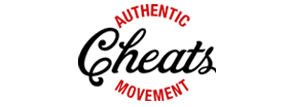
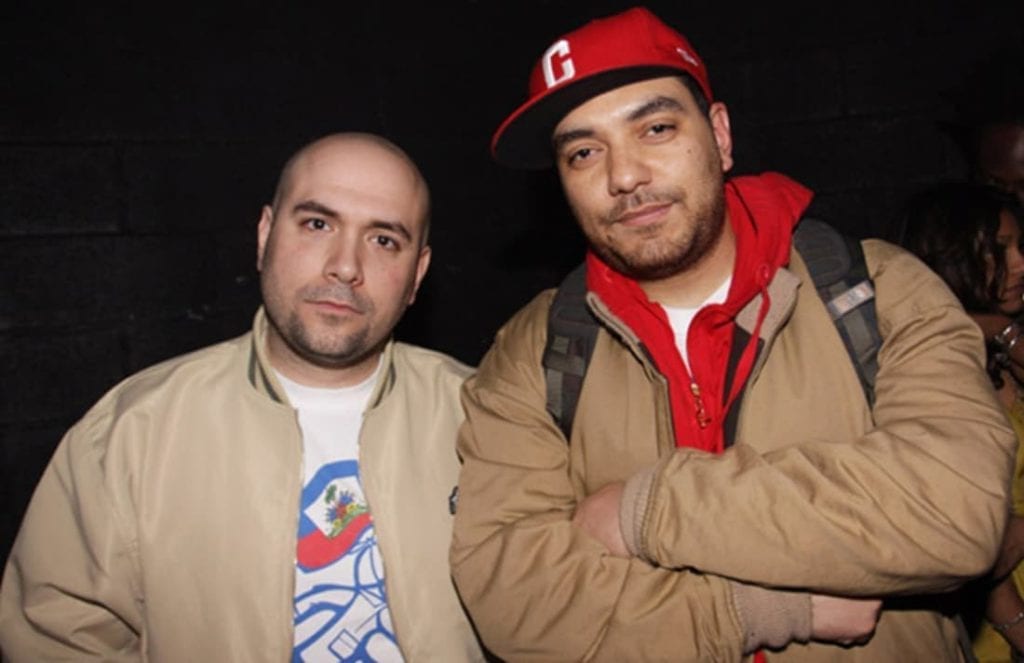
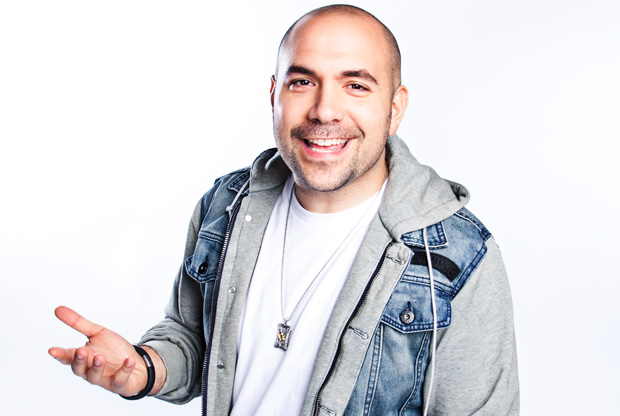
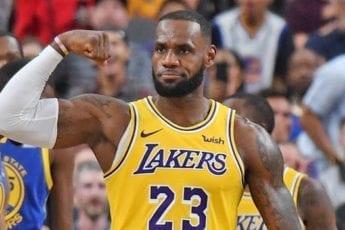
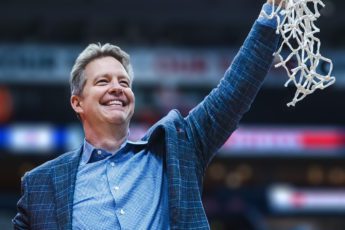
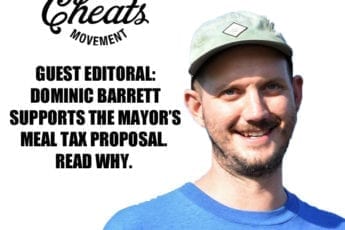


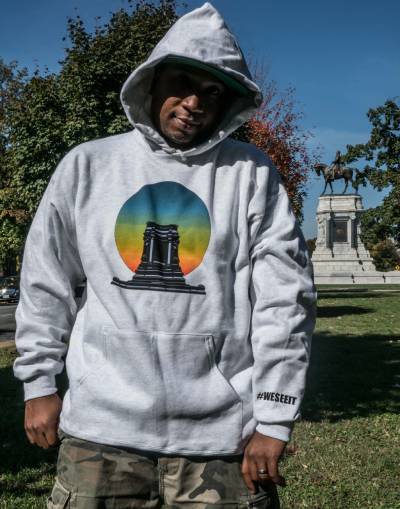 The Cheats Movement is dedicated to hip-hop culture, politics, and community activity. We see our community different than most, therefore, #WESEEIT
The Cheats Movement is dedicated to hip-hop culture, politics, and community activity. We see our community different than most, therefore, #WESEEIT
Leave a Comment